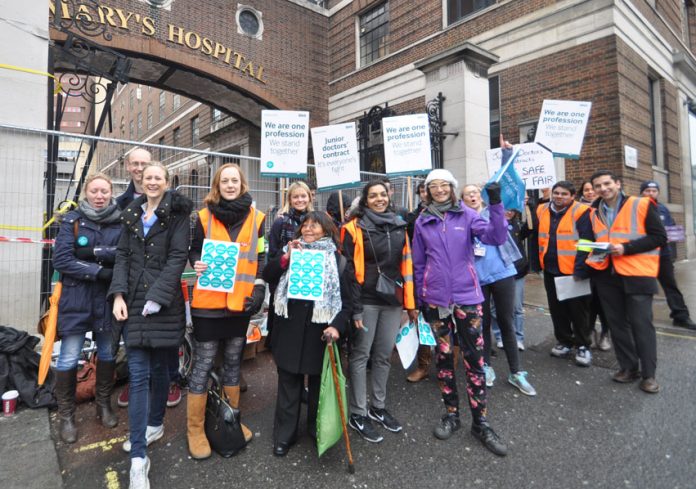HELEN Stokes-Lampard, chair of the Royal College of GPs Council, the UK’s leading doctor, warned yesterday that General Practice is in danger of going under.
‘This will bring hospitals down very quickly too, because they will be completely inundated with patients and that’s a risk to the whole NHS.’ Britain’s leading GP said she is ‘profoundly concerned’ about how doctors will cope with demand over the busy winter period.
Dr Stokes-Lampard said some patients are already waiting two or three weeks to see GPs for matters such as suspect lumps or bleeding problems.
But if they wait three to four weeks ‘the non-urgent stuff may be becoming urgent,’ she warned. ‘With lumps or bleeding problems or things that could be signs of serious disease, my profound concern is that people will delay seeking help for things that could potentially be life-threatening or life-changing if they are not tackled swiftly.’
She went on: ‘As a service that is already skating on thin ice – a service that is stretched incredibly thinly – something has to give. Well, what do you do? If you’ve got to deal with people who are acutely sick on the day because people need help, then chronic disease management will disappear.’
Describing chronic disease management as ‘the most phenomenal success story of the NHS’, she added that her ‘big fear’ was that this would be affected ‘because we are too busy fire-fighting the urgent stuff’.
She said GPs want to do the best for the patients so it causes ‘enormous stress as well as fatigue in us when we are fire-fighting all the time’. She said the situation was getting worse because the service is ‘stretched even more thinly than ever’ due to a lack of funding over the last 10 years.
Responding to the RCGPs warning that general practice is ‘skating on thin ice’, Dr Chaand Nagpaul, BMA GP committee chair, said: ‘In a climate of inadequate funding and severe GP shortages where one in three practices have unfilled vacancies, it is sadly no surprise that practices are struggling to cope and patients are facing unacceptable waits to see their GP.
‘GPs are working flat-out to keep up with rising demand, and are often forced to squeeze care into an insufficient time frame and deliver an unsafe number of consultations, in some cases seeing 40-60 patients a day. In a recent BMA survey, eight out of 10 GPs felt that workload pressures are affecting the quality and safety of the care they provide. General practice cannot be allowed to continue being run into the ground.’
Dr Richard Vautrey, BMA GP Committee deputy chair, said: ‘We have to ensure that the funding that has been identified as urgent and needed by the NHS and the government, is delivered. It must be delivered in an urgent way and isn’t delivered over a longer period of time that would ultimately lead to more practices closing and more patients losing out and potentially even longer waiting lists for access to a GP for a routine appointment than we already have today.’
He added: ‘Ten years ago we used to have ten-and-a-half per cent of NHS budget spent on general practice, now it’s down to less than eight per cent. It might not sound a lot in real terms but it makes a big difference to general practice services.’
